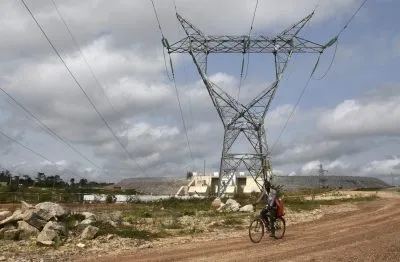In recent years, mergers and acquisitions (M&A) have emerged as the primary exit strategy for startups, with founders increasingly eyeing this path as a means of realising the value of their ventures.
Africa’s startup ecosystem has witnessed a notable surge in M&A activities, with South Africa, Egypt, and Nigeria leading the way.
The acquisition of Paystack by Stripe in 2020 also ignited M&A activities in the fintech space in Nigeria. Other sectors have also seen smaller yet significant mergers and acquisitions, such as the acquisition of Lynk by EdenLife, Autochek’s acquisition of KIFAL Auto, CoinAfrique, and most recently, a majority stake in AutoTager.
In Q1 2023 alone, seven M&A deals took place in the African startup ecosystem worth over $710m. In comparison, only two startups have exited through an initial public offering – the other common form of exit for startups worldwide – since 2019. E-commerce platform Jumia was the first, listed on the New York Stock Exchange, while Egyptian fintech Fawry went public on African soil.
The question arises: What are the underlying causes of this trend, and is it becoming the new normal for African startups?
The funding environment in Africa
M&A in the startup world can take different forms, each with its own unique drivers and objectives.
One scenario involves a startup acquiring another company in a foreign market to facilitate rapid expansion and market penetration. This has been the case recently for the Tunisia-founded expense management software company Expensya, which was bought by its Swedish counterpart Medius on a “9-figure acquisition,” according to the press release.
Horizontal M&As occur when two companies operating in similar markets merge to consolidate their positions. Conversely, vertical M&As unite businesses that previously engaged in transactions, such as a manufacturer and a distributor.
Another motivation for M&A activity is the desire to overtake or neutralise strong competition, leading to the adage, “If you can’t beat them, buy them.” Startups may also opt for acquisitions to fast-track product development by acquiring early-stage companies and bypassing the initial stages of innovation.
Although the African startup ecosystem is centred around technology and innovation, it remains fundamentally a business environment.
In the face of competition, businesses either acquire their rivals to eliminate competition or collaborate to expand market share. This prevailing mindset and the business-first nature of the African ecosystem suggest that M&A deals will continue to shape its landscape.
M&As offer a guarantee of revenue in a tough business climate
Diverging from the Western climate, the African startup ecosystem fosters a sense of togetherness and a collaborative mission to drive continental improvement.
This shared pursuit of success and the aspiration to create unicorns – referring to startups with a value of over $1bn – is fuelling the emergence of an M&A climate.
As Juliet Ehimuan, the ex-Google director for West Africa, put it in a recent talk during a conference in Lomé: “We have less than 20 unicorns for a continent of 1.2bn people. My big idea would be for us to see the emergence of 500 unicorns in the next few years.”
But as Africa continues its journey of innovation and cutting-edge solutions, founders, investors, and startup employees face a dynamic and ever-changing environment.
In this unpredictable climate, M&As offer a guarantee of revenue, whether through the acquisition of smaller companies by larger entities or mergers between startups seeking to expand market share and introduce new revenue models.
Recent instances, such as the complete acquisition of Nigerian-based crypto company Fluidcoins by UAE’s Blockfinex after Fluidcoins struggled to secure funding, exemplify the role M&As play in saving the day while delivering returns to investors.
Harsh funding climates have forced many startups to shut down, but successful acquisitions or mergers could have provided a lifeline even for these early-stage companies. M&A activities, with their various financial arrangements, including performance-based payments, instalments, or cash and shares, offer a means to save struggling ventures and spur growth.
M&As as a safe entry point for foreign investors
The African market is huge and we see founders in various sectors building for the African markets. Each builder contributes to the ecosystem and creates a better chance of success for the entire ecosystem.
This is also matched with government, investors and other ecosystem builders rising up to the occasion and placing their bet on Africa. With this obvious huge potential, we have seen a surge of collaborations, initiatives and investments – financial and human – from foreign companies interested in this market.
As it stands, in many boardrooms of large companies in the West, there are conversations on how to expand to Africa and tap into the massive market.
In recent times, we have seen initiatives from Fortune 500 companies, the MAMAA and even banks or established companies, creating an arm, a product, a foundation, or a venture capital initiative to contribute to the market.
Though a means of contributing to the growth of Africa, it is primarily a value proposition for the business with the aim to establish itself in the innovation and startup space in Africa.
Soon, many of these companies will acquire and merge with the African companies they have contributed to or better still invest for the purpose of returns.
M&A is a catalyst for funding, but a cautious approach is required
Ultimately, mergers and acquisitions serve as a form of funding and venture investing, granting power to funders, organisations, markets, and the ecosystem as a whole.
As Africa’s startup ecosystem continues to expand, M&A activity is set to become a norm.
These transactions offer startups a pathway to secure funding, while larger companies aim to consolidate their market positions and tap into the continent’s immense potential.
The collaborative spirit and business-oriented nature of the African ecosystem set the stage for a surge in M&A activities, allowing startups to navigate competitive landscapes and achieve sustainable growth.
But amidst this evolving landscape, founders must make informed decisions, considering legal expertise that comprehends the unique dynamics of startups, the African ecosystem, and its markets.
By embracing M&A as a strategic tool, African startups can forge a path toward success and contribute to the ongoing economic transformation of the continent.

To keep up with the latest in African tech, subscribe to Tech54
Our Tech54 newsletter delivers an incisive look at the continent’s tech scene every fortnight. Subscribe here.
Want to continue reading? Subscribe today.
You've read all your free articles for this month! Subscribe now to enjoy full access to our content.
Digital Monthly
£8.00 / month
Receive full unlimited access to our articles, opinions, podcasts and more.
Digital Yearly
£70.00 / year
Our best value offer - save £26 and gain access to all of our digital content for an entire year!
 Sign in with Google
Sign in with Google 





